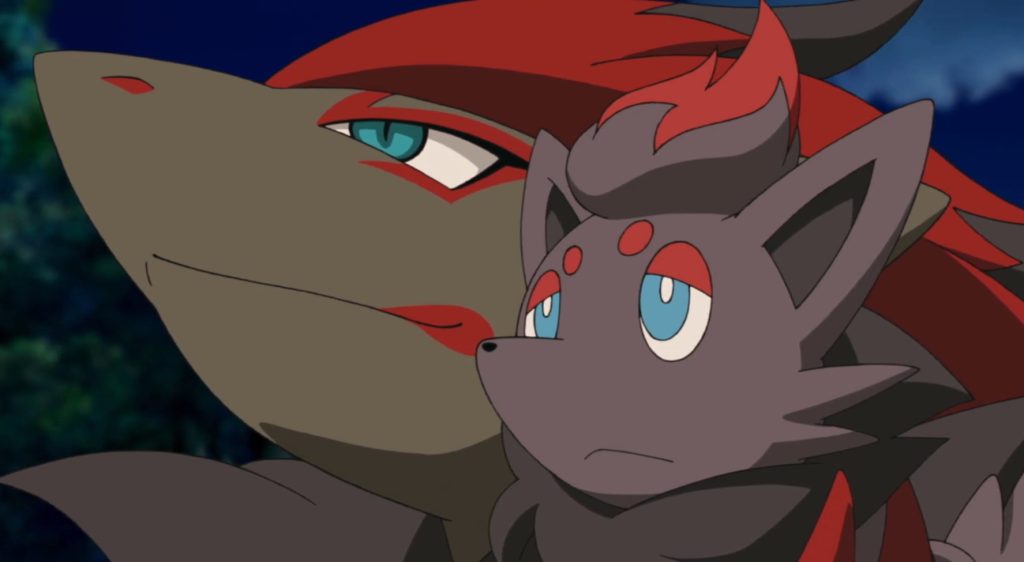
Pokémon Zoroark: Master of Illusions, released in 2010, takes viewers on a poignant journey through the heart of Pokémon lore and human-Pokémon relationships. Zorua, a mischievous fox-like Pokémon capable of mind-bending illusions, stumbles upon Ash Ketchum and his friends in a secluded forest. Thrust into a conflict between a tribe of Zorua living in secret and a vengeful businessman exploiting Pokemon for profit, Ash and Pikachu find themselves entangled in a web of lies and deception. As the truth about Zoroark’s power and past is revealed, the film explores themes of prejudice, family, and the transformative power of illusion.
A Tapestry of Illusions: Animation Blurs Reality and Fantasy
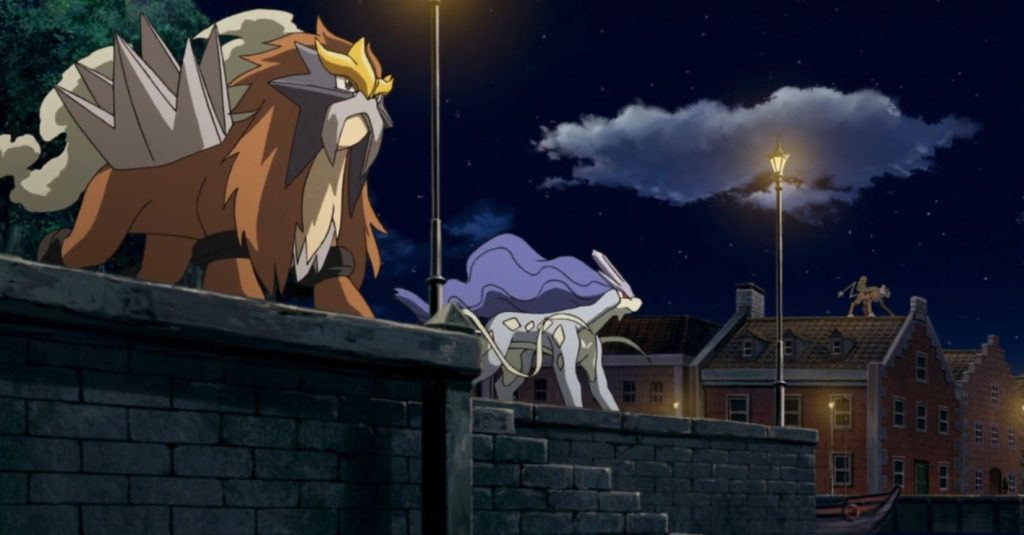
The film boasts stunning animation, particularly in its portrayal of Zoroark’s illusions. Vibrant landscapes blur into fantastical dreamscapes, with holographic Pokemon appearing and disappearing in dazzling bursts of light. While not as consistently detailed as some later CGI-enhanced Poké-movies, the hand-drawn sequences capture a nostalgic charm and warmth, especially in scenes depicting the close bond between Zorua and its adopted mother, Zorark. The action sequences, utilizing Zoroark’s illusions to create playful chases and thrilling battles, are visually captivating and add a unique dimension to the film’s narrative.
Beyond Badges and Battles: Heartfelt Themes Echo Underneath the Action
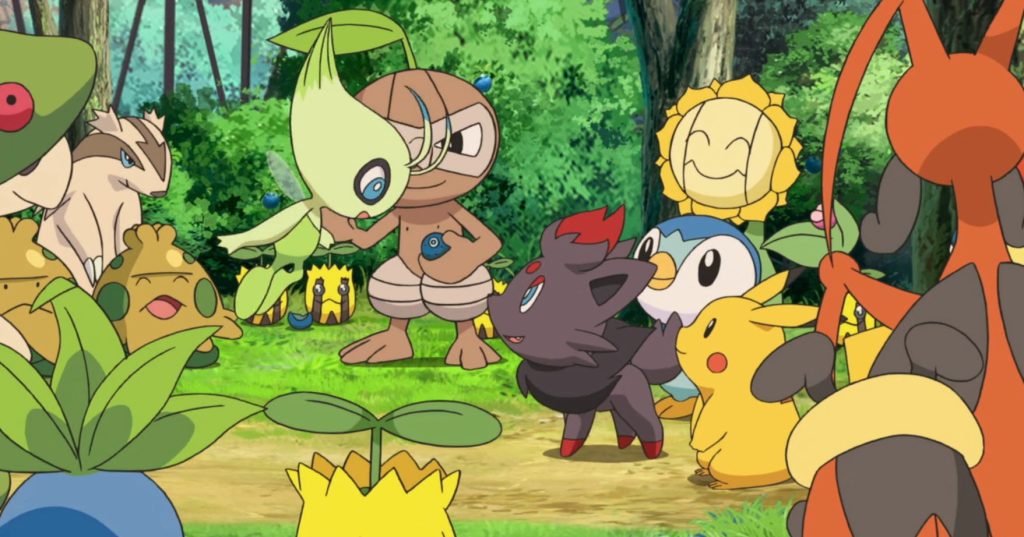
Zoroark: Master of Illusions transcends the usual “catch ’em all” formula by diving deep into themes of family, prejudice, and the dangers of judging by appearances. The Zorua tribe, ostracized and feared for their illusionary abilities, mirrors real-world experiences of discrimination and misunderstanding. The film challenges viewers to see beyond the surface and empathize with the motivations behind Zoroark’s deceptive tactics, exploring the lengths a parent will go to protect their child. While not overly preachy, these themes add depth and emotional resonance to the film’s core adventure, leaving a lasting impression long after the credits roll.
Pokémon Zoroark: Master of Illusions: A Cast with Shadows and Shine
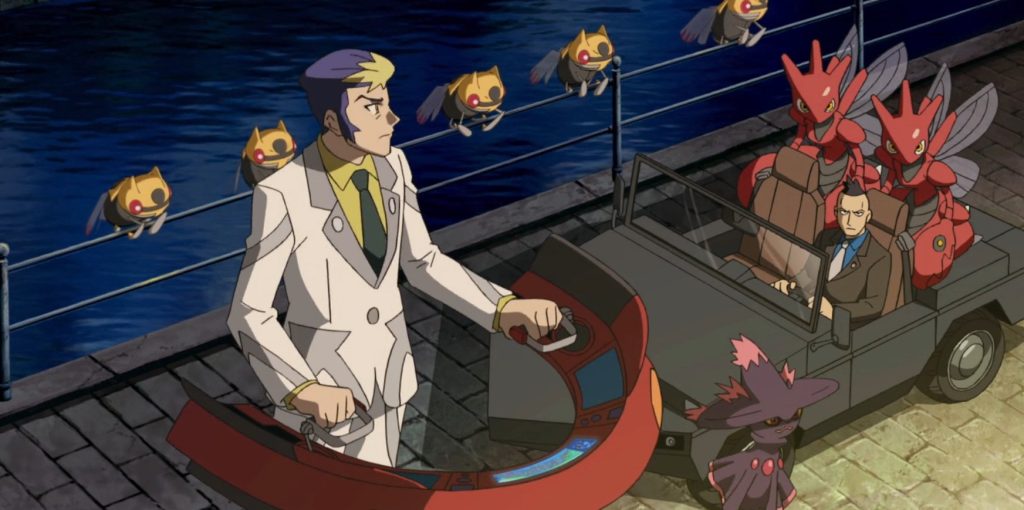
While Ash and Pikachu remain the familiar anchors, the film shines in its portrayal of Zoroark and Zorua. Zorua’s mischievous antics and unwavering faith in his mother endear him to viewers, while Zorark’s fierce protectiveness and tragic backstory evoke sympathy and understanding. Even minor characters like Kodai, the villain driven by greed and resentment, are given enough depth to feel more than one-dimensional antagonists. Each character, bathed in the shadows and light of illusion, contributes to the film’s rich tapestry of emotions and motivates Ash’s journey towards compassion and acceptance.
FAQs: Unraveling the Illusions
1. Is Pokémon Zoroark: Master of Illusions worth watching?
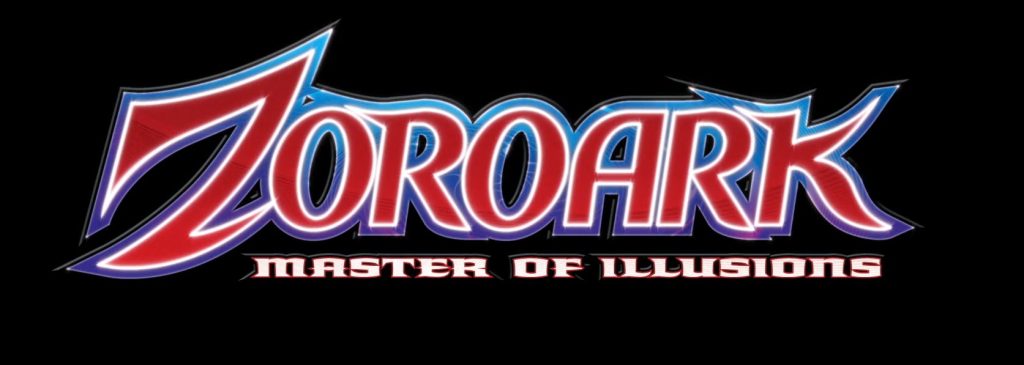
For fans seeking a deeper emotional journey within the Poké-verse, Zoroark: Master of Illusions offers a rewarding experience. The stunning animation, compelling characters, and exploration of mature themes elevate it beyond typical Pokémon movie fare. However, those expecting traditional battle sequences and lighthearted humor might find the tone darker and the focus less on capturing Pokemon. Ultimately, whether you’re drawn to the mesmerizing illusions or seek a heartfelt story about family and acceptance, Zoroark: Master of Illusions offers a captivating adventure that leaves a lasting echo long after the final curtain falls.
2. How does Pokémon Zoroark: Master of Illusions connect to the anime series?
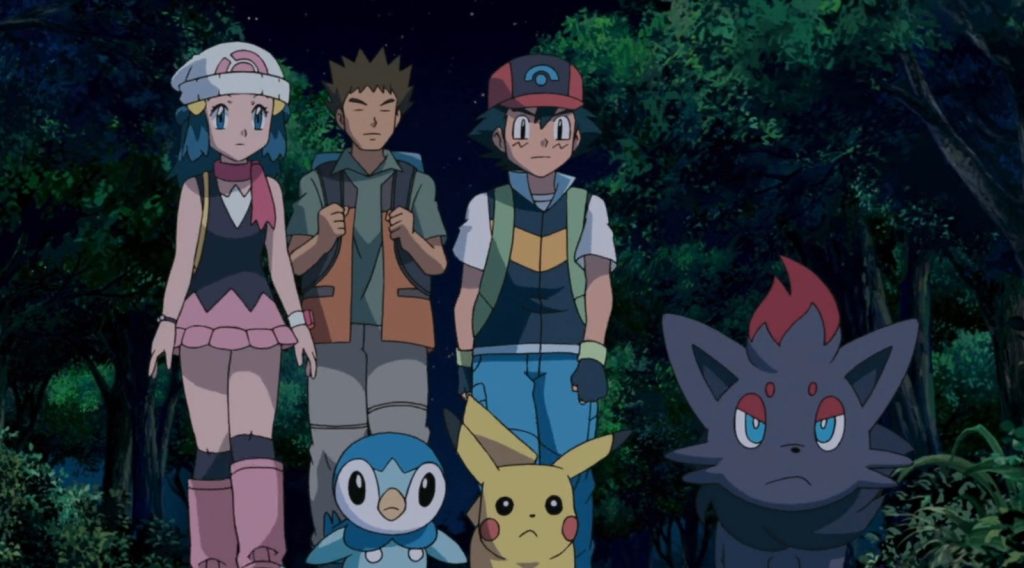
The film takes place during Ash’s journey through the Unova region, coinciding with the fifteenth season of the anime. However, it doesn’t directly impact the main storyline and can be enjoyed as a standalone adventure.
3. What makes Zoroark so special?
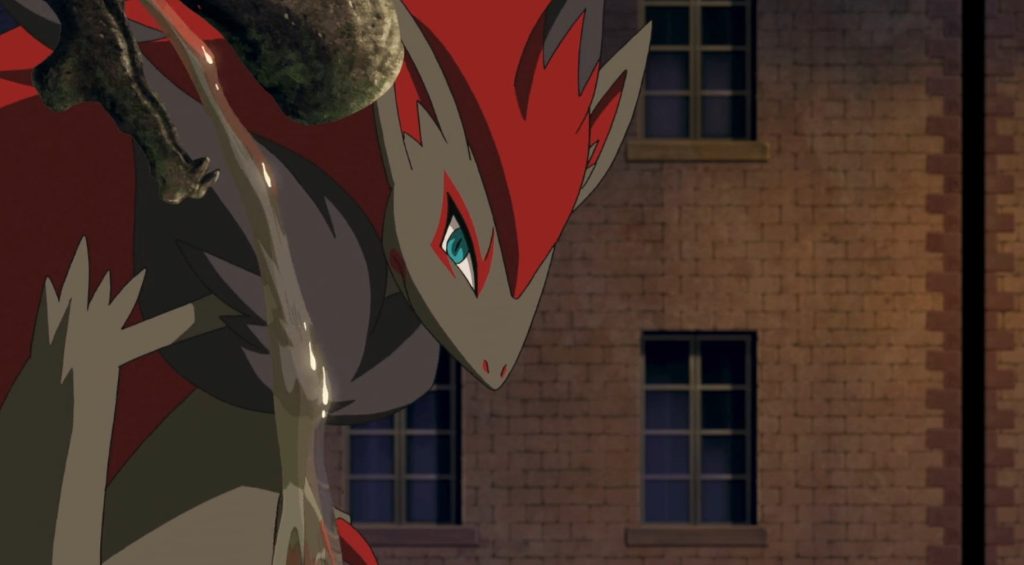
Zoroark is a Dark-type Pokemon known as the “Illusion Fox.” Its ability to create lifelike illusions and manipulate others’ perceptions makes it a powerful and mysterious creature. Zoroark’s fierce loyalty to its family and the emotional depth explored in the film elevate it beyond being simply a cool-looking Pokemon, giving it a unique and endearing role in the Poké-verse.
Verdict: A Heartfelt Mirage, Leaving a Lingering Glow

Pokémon Zoroark: Master of Illusions is not your typical Pokémon movie. It captivates with its stunning animation and mesmerizing illusions, but truly shines in its exploration of heartfelt themes. The film’s poignant portrayal of family, prejudice, and acceptance resonates deeply, leaving viewers pondering the complexities of judging by appearances and the transformative power of empathy.
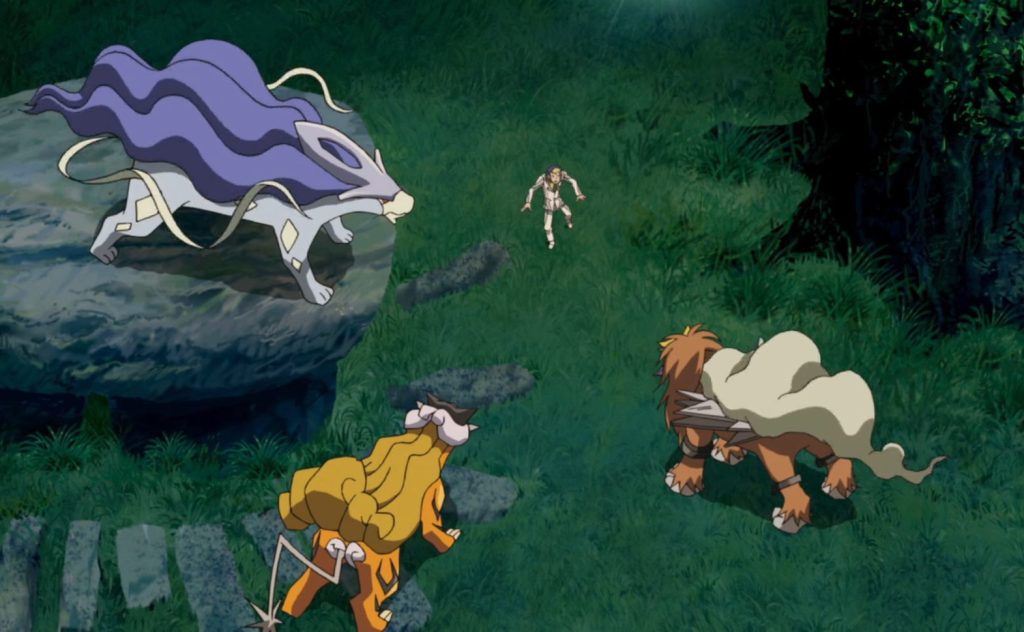
While action sequences are present, they’re not the driving force; instead, the focus lies on character development and emotional journeys. The relationship between Zorua and Zorark forms the emotional core, weaving a tale of fierce protectiveness and unconditional love that tugs at heartstrings. Even the villain, Kodai, isn’t simply one-dimensional; his motivations, rooted in past grievances and misunderstanding, offer a glimpse into the consequences of hatred and a reminder of the potential for redemption.
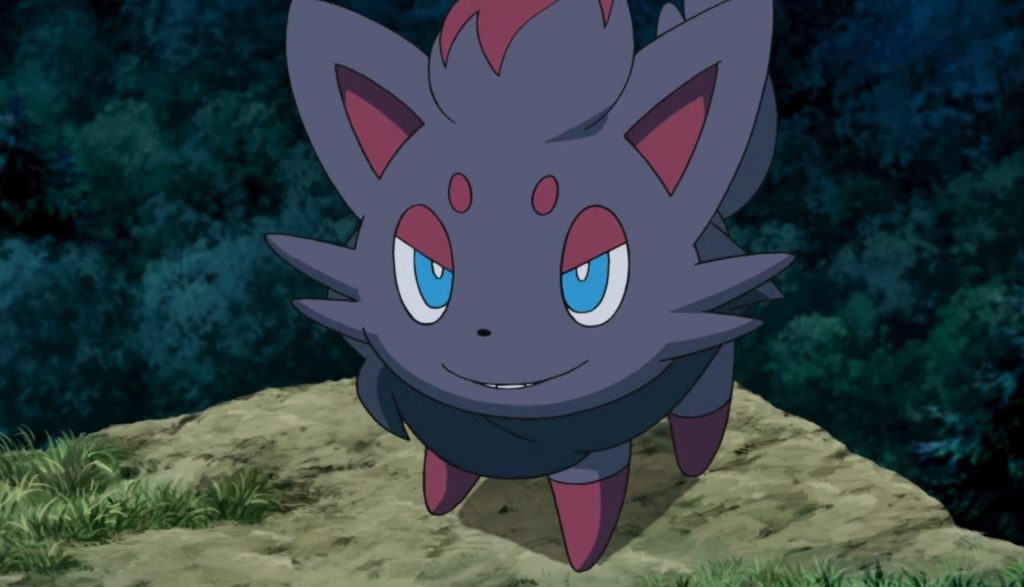
Ultimately, Zoroark: Master of Illusions leaves a lasting glow, not through flashy battles or spectacular special effects, but through its heartfelt story, compelling characters, and the message that sometimes the most powerful illusions lie not in manipulating reality, but in opening our hearts to understanding and acceptance.
Whether you’re a seasoned Pokemon movies fan or a curious newcomer, this film offers a captivating and emotionally resonant journey through the depths of the Poké-verse, reminding us that the most valuable battles are often fought not on the field, but within ourselves.